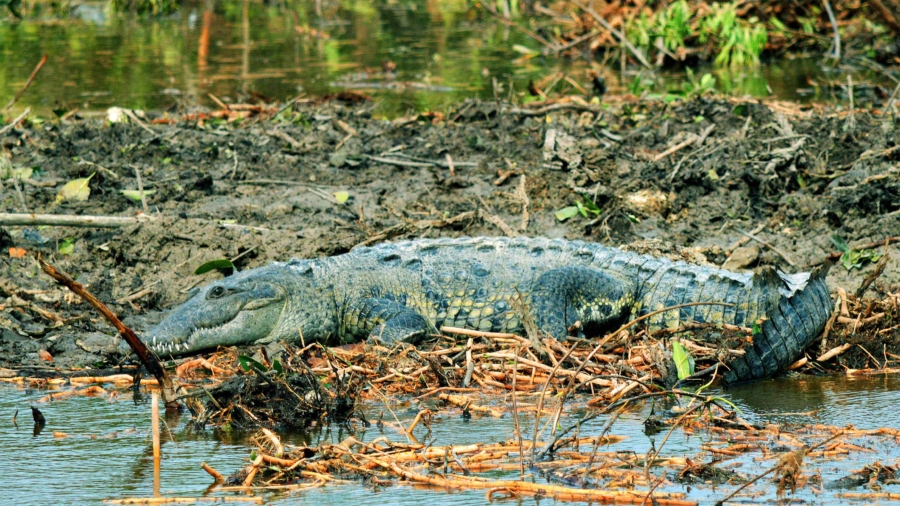A U.S. tourist visiting Cancún was in critical condition after a crocodile bit off half of his arm on July 4.
Cal Monzon, 40, drunkenly waded into a lagoon and was attacked by a crocodile.
Monzon waded into Nichupté Lagoon, which is clearly marked as home to over 150 crocodiles. One of the animals burst out of the water and seized his lower arm. He managed to struggle free from the attacking reptile and reached the shore.
A security guard who heard Monzon screaming, rescued the injured tourist.
Monzon was taken to a hospital where more of his arm had to be amputated because of the amount of damage the crocodile had done.
Monzon was staying in the Riu Palace Peninsula hotel in Cancún. Cancún is a popular tourist destination on Mexico’s Yucatán Peninsula, which extends into the Caribbean Sea.
The hotel sits on a narrow strip of land separating the ocean from Nichupté Lagoon, a 7-mile-long lake, which connects to the sea through a pair of channels.

The lake is a natural reserve for the regional mangrove ecosystem; this makes it the perfect habitat for many forms of marine life, including crocodiles.
There are several crocodile attacks every year in Nichupté. Another drunken wader was killed by a crocodile in 2015.
In June of this year, Gonzalo Merediz Alonso, executive director of the ecological group Friends of Sian Ka’an, reported that crocodiles were becoming comfortable with humans and were actually venturing to hotels and restaurants.
Meridez Alonso said the crocodiles should be removed and kept in an enclosed area to prevent human/reptile interaction.
“The hoteliers and restaurateurs do not want to finance the project of a problem that they generated years ago, adapting the crocodiles to eat what they threw into the lagoon,” he told the riviera-maya-news.com.
News of the crocodile attacks arrived the day after news of another attack by a sea creature—a shark, in this case.
A North Carolina man was trying to help a fisherman land a shark when the shark bit him. The incident was caught on video.
A fisherman was casting near Johnnie Mercer Pier at Wrightsville beach about 7:30 p.m. on June 29. He hooked a shark and was trying to land the 4-foot fish when another man waded into the waist-deep water and attempted to grab its tail.
The shark whipped around and bit the man, apparently on the right arm. He was taken to the hospital for treatment.
Despite their fearsome images, neither sharks nor crocodiles are particularly deadly. While crocodiles do kill about 1,000 people per year around the world, almost none of those attacks are in or near the United States—fewer than one per year. Sharks kill about 10 people worldwide each year.
By Chris Jasurek for NTD News


